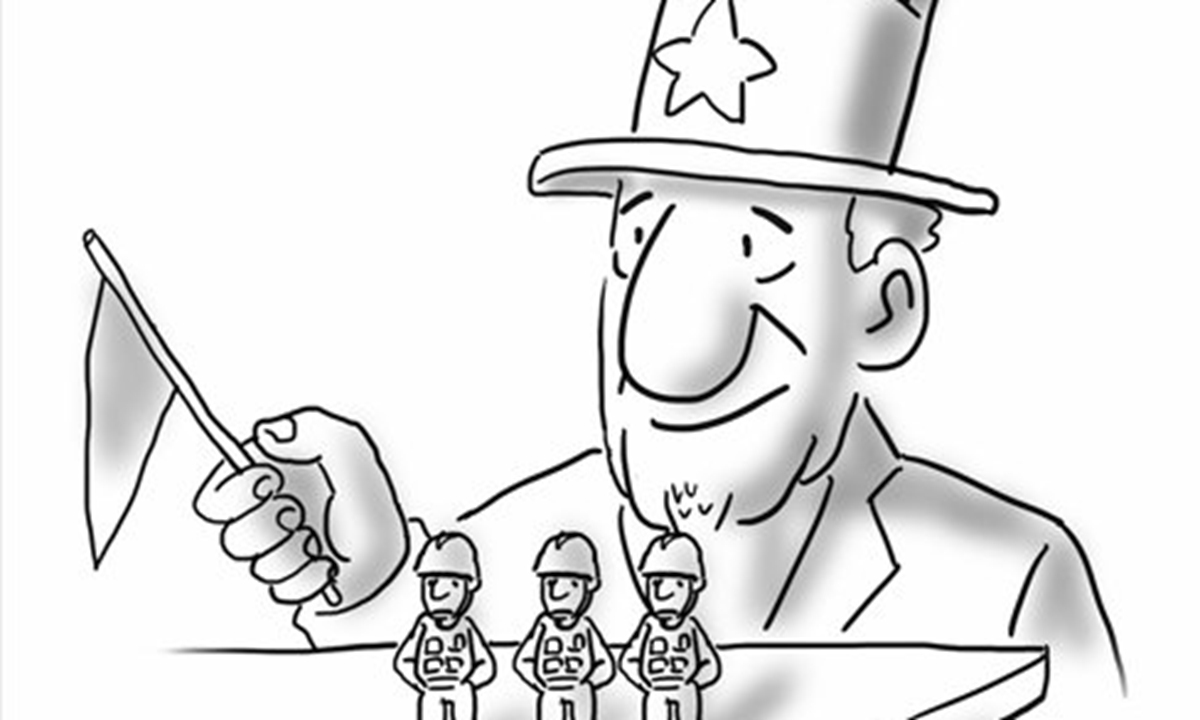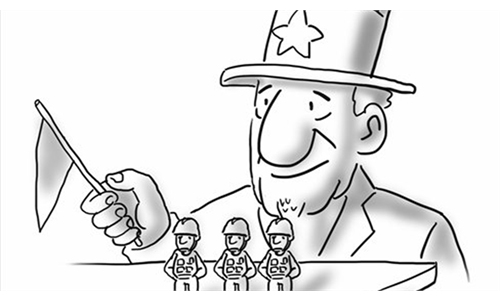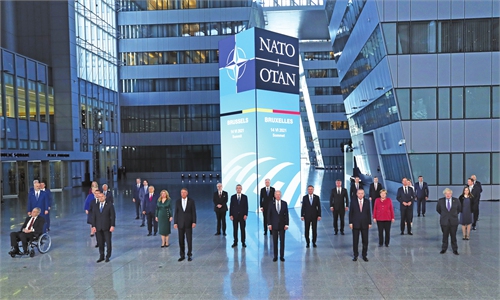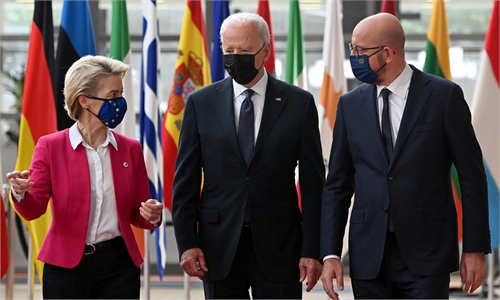
Illustration: Liu Rui/GT
US Secretary of Defense Lloyd Austin held a meeting with his counterparts from France, Germany and the UK on Tuesday in Brussels. Austin said on Twitter that the meeting was "the first Euro Quad Defense Ministerial since 2014."This so-called Euro Quad meeting was held one day before the Putin-Biden summit. It was another move by Washington to pile pressure on Moscow with the attempt to show that the four countries have a concrete consensus: Russia is their main adversary in Europe.
Austin wrote on Twitter, "we discussed how we will adapt to face increasing regional and global security challenges." This is a strategically ambiguous narrative, but all people know at whom he is pointing the gun at, because NATO has already clearly lined out the targets in its statement. On the other hand, with the Putin-Biden summit at the doorstep, the US is being reluctant to name Russia to create a benign atmosphere for the meeting. But Washington hasn't changed its norm to deter Moscow when it needs.
Nonetheless, within the four countries, the US and the UK are synergic, while Germany and France hold different stances over certain topics. Berlin and Paris to some extent prefer cooperation with Moscow rather than engage in comprehensive containment over it. However, the US and the UK view Russia as enemy, or at least adversary. In addition, there is discord between the UK and Germany and France due to Brexit. All these factors together determine that a meeting of the so-called Euro Quad cannot address the four countries' differences - nor can they reach any real consensus. As for Russia, President Vladimir Putin will probably just laugh the meeting off.
Austin's emphasis on "Euro Quad" reflects US intention to build more "small circles" like this around the world. These small circles are specifically aimed at certain targets: Quad at China, and Euro Quad at Russia. In building these small circles, the US has roped in countries with great regional influence to strengthen their consensus. It cannot be ruled out that the US aims to form a "big circle" against China and Russia by uniting all those small circles, on the basis of meeting the interests of all parties involved.
Making a big circle is actually a move to expand NATO - with the aim to turn the outdated group into an international military organization. This is obviously a demonstration of the US' Cold War mentality. But such a path only leads to a dead end. Quite a few countries don't agree with many US policies, especially those that have de facto inherited the "America First" doctrine.
Different from the US, more countries in Washington's "circles" view China as an opportunity rather than a threat. Against this backdrop, it is not realistic for the US to continue obsolete Cold War-style suppression of China.
The Quad, a coalition forged by the US, Japan, Australia and India, is viewed by some as "Asian NATO." Meanwhile, the Euro Quad is more like an elite group within NATO - it aims to unite the most elite countries in the bloc to form more solid consensus.
But such a move will inevitably classify all NATO members into different hierarchies. At the same time, the US is also planning to have more countries increase their contribution to the cost of US troops, while trying to sell them more weaponry. As a result, some NATO countries will probably feel unvalued, and thus be reluctant to go on contributing their finance, material and personnel strength to the group. Hence, this US approach is tantamount to shooting itself in foot.
The author is a military expert and TV commentator. opinion@globaltimes.com.cn



